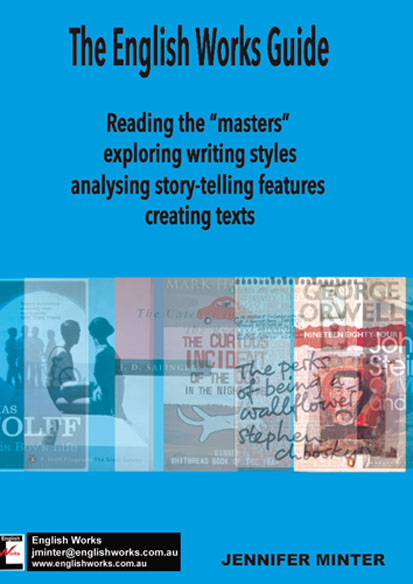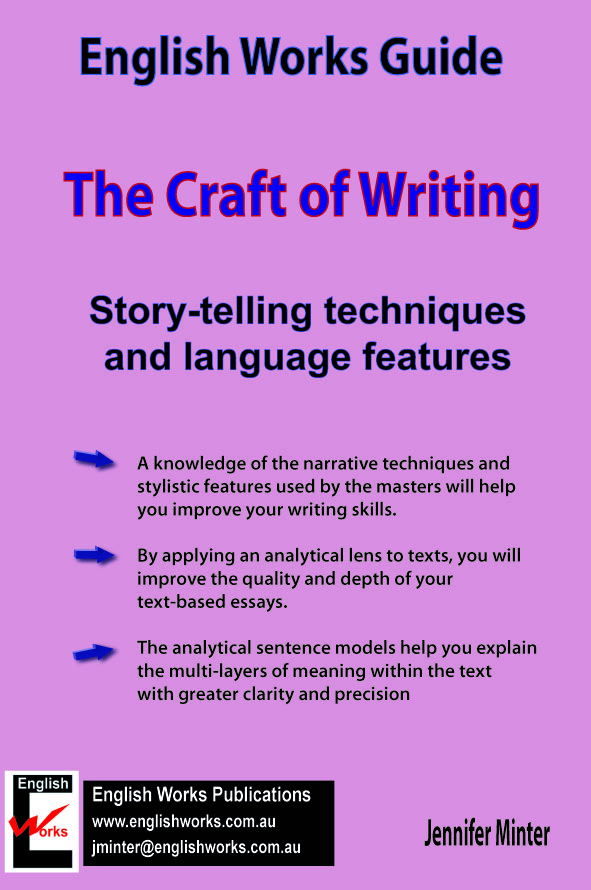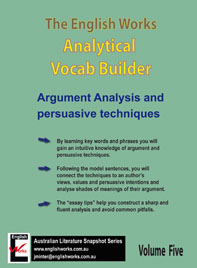We will be using three workbooks: The Analytical Vocab Builder; The Craft of Writing (analytical model sentences for literary features); The English Works Reading Texts of the Masters (blue)
Dates: Thursday 5.30: May 4th; 11th; 18th; 25th; June 1st; 8th; 15th
See our round-up of 18th May

Structure of Personal Writing; Key Word/Thematic pieces
See outline or structure (samples). These are the components below.
Spotlight on “purposes” and hybrid samples. (Read pieces from the masters.
Key Ideas Work
It is critical to dissect themes and work on a “checklist” of the author’s key ideas, views, values, concepts and message. These will become the basis of your essays and will help you write more trenchant topic sentences. You must unpack and evaluate these key concepts — place them in a narrative context (evaluate their significance for the text as a whole, taking into account social/political/cultural settings) do not skip from a general, broad (and often times vague) topic sentence to word-level analysis.
You must plan your essays showing a progression of ideas/key concepts. The first half of the essay tends to hover around “world-of-the text” foundational issues. You will progress to a more complicated model, exposing the ironies, contradictions, inconsistencies, paradoxes, ambiguities in characters as they resolve and negotiate their dilemmas as a reflection of the author’s views and values. (See “Checklist“)

Evaluation of Story-telling features and literary techniques
A focus on language features helps you evaluate the author’s key ideas and their values. They also help you analyse the multi-layers of a text, while honing in on the most salient features of a piece. A page from Charles Dickens, Alistair Macleod, Harper Lee, George Orwell or J D Salinger is full of interesting, simple/complex language features.
Ability to extrapolate key examples and synthesise
You must hone in on key ideas and provide succinct examples. (You must avoid a plot summary, or a character profile.) Evaluating key story-telling structural features can help, such as recurring motifs, turning points, transformational insights, denouement, comparisons and ironies.
You must condense and synthesise: avoid vague, general and repetitive statements; use nominals; strategic quotes and language features.
Read widely – from the masters.
And watch your quotes – you must contextualise your quotes; place them in a narrative context; and work your sentence around the quote. Do not reword quotes from Shakespeare or poets.

Key ideas opinion-based texts
We will also evaluate key ideas opinion-based texts which typically showcase a variety of “purposes” — again locating the author’s, views, values, and call to action.